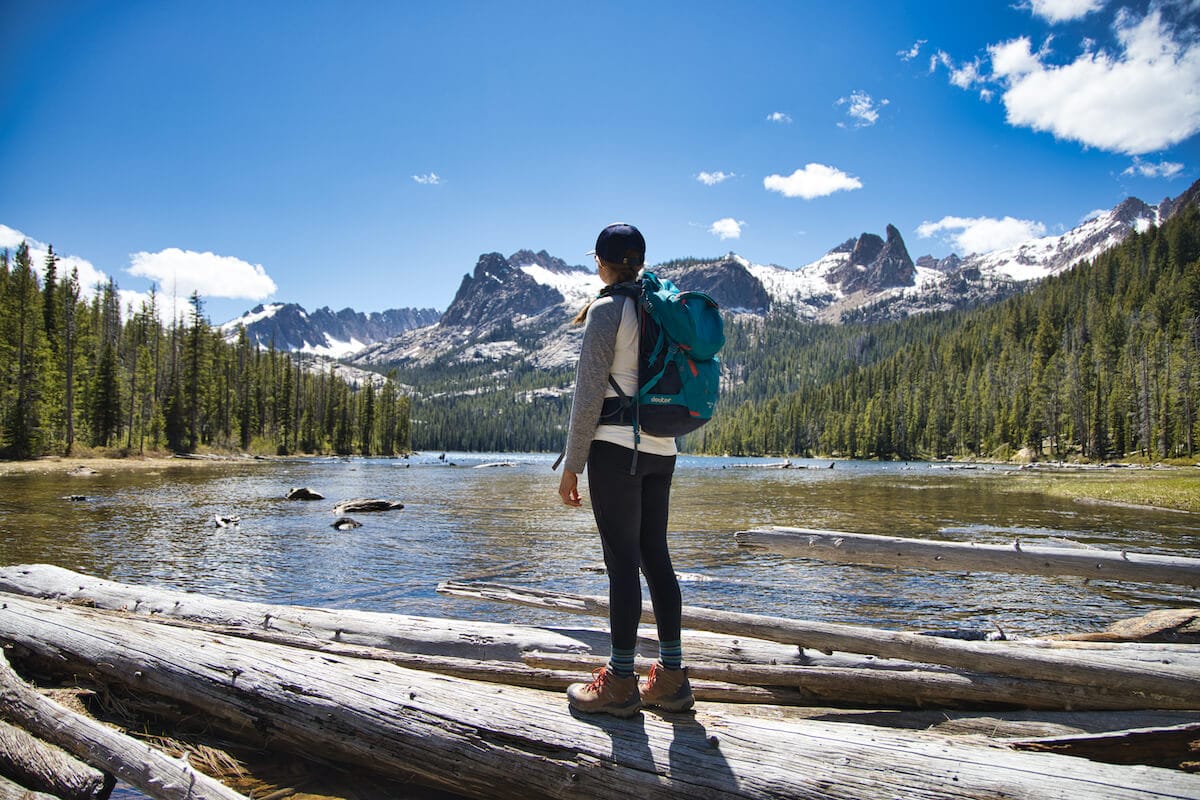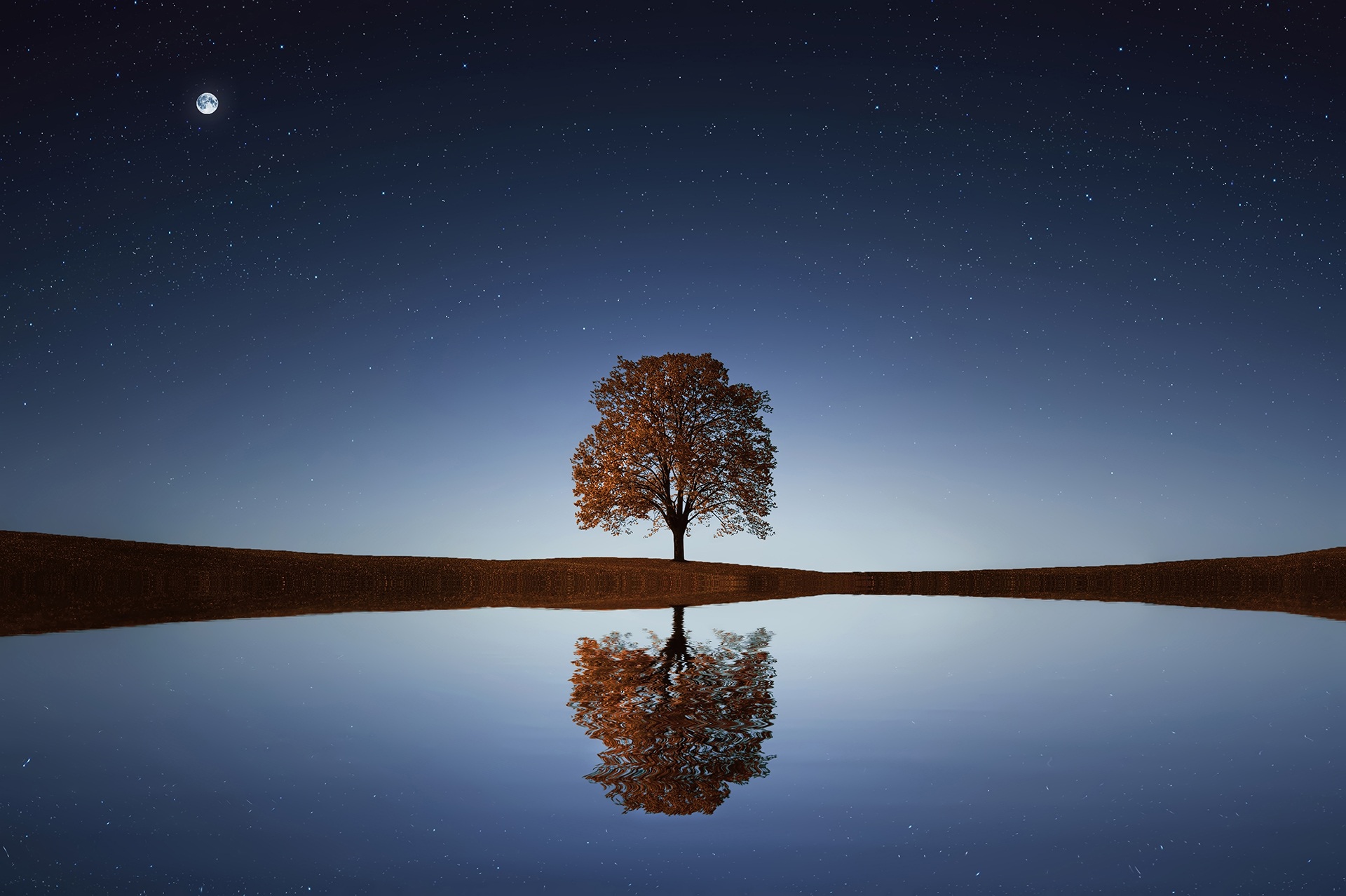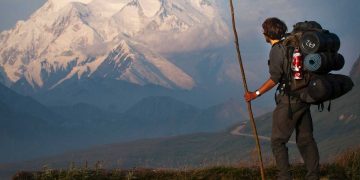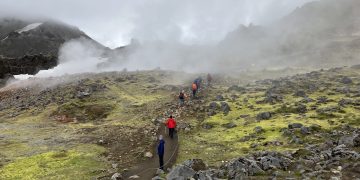Hiking is an activity that connects us with nature, offers physical challenges, and provides a break from the fast-paced, digital world. But when it comes to choosing between hiking solo or in a group, many outdoor enthusiasts often wonder which is better. While group hikes have their merits—social bonding, shared experiences, and a sense of safety—solo hiking offers unique advantages that may resonate more deeply with certain adventurers. But what makes solo hiking so compelling? Let’s dive into the world of solo hiking and explore why this approach can be more rewarding than joining a group.
1. Freedom to Explore at Your Own Pace
One of the most obvious benefits of solo hiking is the freedom it offers. When you’re hiking alone, you set the pace. There’s no need to worry about keeping up with others, waiting for someone to catch up, or adjusting your plans based on someone else’s preferences. You can take as many breaks as you like, linger at scenic spots, and move faster when you’re feeling energetic. This flexibility allows you to truly immerse yourself in the environment without any pressure.
Whether you prefer to take a leisurely stroll through the forest or tackle a challenging mountain peak, solo hiking lets you dictate the rhythm of your journey. No need to compromise on your vision of what the hike should be—every moment is yours to curate.
2. Deep Connection with Nature
Solo hiking encourages you to be fully present in the environment. Without the distraction of conversations or the need to keep up with a group, you can focus entirely on your surroundings. The wind rustling through the trees, the smell of pine and fresh earth, and the sound of birdsong or rushing water can become all-consuming in a way that’s hard to replicate when you’re with others.
Being alone in nature can bring a profound sense of peace and connection. It allows you to tune in to the rhythms of the wilderness, listen to your inner thoughts, and even tap into your own spiritual or meditative practices. The solitude of solo hiking fosters a deeper appreciation for nature’s beauty and complexity.

3. Enhanced Self-Reliance and Confidence
Solo hiking is an empowering activity. It forces you to rely on your own skills and instincts to navigate the trail, solve problems, and manage any obstacles that arise. You’ll need to plan ahead, prepare for potential emergencies, and handle challenges independently. This can range from basic tasks like reading a map or maintaining your trail markers to more complex situations, such as figuring out a way through tricky terrain or coping with sudden weather changes.
Each challenge overcome while hiking alone builds self-reliance, resilience, and confidence. The satisfaction of completing a hike on your own can be incredibly rewarding, especially when you realize that you trusted yourself every step of the way.
4. Personal Reflection and Mental Clarity
The solitude of solo hiking provides an ideal environment for reflection. In the absence of distractions, your mind has the space to wander, process thoughts, and come to conclusions. Whether you’re contemplating life decisions, working through a personal dilemma, or simply decompressing from the stresses of daily life, hiking alone offers a rare opportunity for deep mental clarity.
This mental rejuvenation can lead to insights or creative solutions that might not have surfaced otherwise. Many people report that their best ideas and breakthroughs come during solo outdoor experiences, where the mind can flow freely without interruption.
5. Avoiding Group Dynamics and Conflicts
Group hikes, while fun, often come with a set of social dynamics that can lead to conflicts or frustrations. Differences in fitness levels, hiking styles, and expectations can create tension. Some people may prefer a leisurely pace, while others might want to power through the trail. Moreover, there may be disagreements on where to take breaks, what routes to take, or even what to eat for lunch.
When you hike alone, you avoid these potential conflicts. There’s no need to accommodate differing personalities or preferences. You don’t have to compromise on decisions like when to stop for lunch, how long to rest, or which trail to take. The experience is yours and yours alone, free from the influence of group dynamics.
6. A Greater Sense of Achievement
Completing a hike on your own is an accomplishment that is often more meaningful than completing it with others. Without anyone else to rely on, you take full ownership of your success. This sense of accomplishment is deeply personal and can create a lasting sense of pride. You did it on your own terms, and that can be an incredibly fulfilling feeling.
Additionally, solo hikers tend to develop a stronger relationship with the challenges they face on the trail. Since they navigate every obstacle alone, they often feel more connected to the journey and the sense of progress. This adds to the overall sense of achievement.
7. Fewer Distractions: More Immersion
When you’re hiking with a group, it’s easy to get distracted by conversation, social dynamics, or even the occasional argument. Group activities naturally introduce distractions that can pull your attention away from the scenery or the experience itself. Solo hiking, however, eliminates these distractions.
In the quiet of your own company, you can focus entirely on the beauty around you—the landscape, the wildlife, the sounds of nature, and the unique energy of the environment. Every step becomes a chance to be more present, to fully experience the outdoors without the mental clutter that sometimes accompanies group outings.
8. Improved Mind-Body Connection
Solo hiking allows you to be more attuned to both your body and your surroundings. When you’re alone, you can pay closer attention to your body’s signals—how you’re feeling physically, how much energy you have, and what your limits are. This level of awareness can improve your hiking experience, helping you pace yourself appropriately and make smarter decisions about when to rest or push forward.

Without the need to keep up with others or wait for slower hikers, you can adopt a pace that best suits your personal comfort. This increases both the physical and mental benefits of hiking, creating a more holistic, grounded experience.
9. Flexibility in Route Choices and Itinerary
When hiking with a group, you’re often bound to the group’s chosen route and itinerary. This can limit your options in terms of exploration, as your decisions must accommodate everyone’s desires and abilities. With solo hiking, however, you have complete freedom to change course on a whim.
Feel like taking an unexpected detour to explore a hidden creek? You can do that. Want to extend your hike because you’re feeling energized? Go ahead. The absence of a rigid schedule or group expectations opens up a world of possibilities for spontaneity and adventure.
10. A Unique Bond with the Environment
Solo hiking creates a personal relationship with the trail, the landscape, and the environment. When you hike alone, you develop a deeper connection to the natural world, as you are more immersed and attentive. There’s no “buffer” of other people to distract you from this connection—it’s just you and nature.
Whether it’s observing animal tracks in the mud, finding a hidden waterfall, or encountering the silence of the wilderness, solo hiking offers a unique bond with the environment that is harder to replicate in a group setting.
Conclusion: Is Solo Hiking Right for You?
While group hikes can be enjoyable, solo hiking offers a different kind of adventure. It’s about independence, self-discovery, and creating a personal connection with nature. The ability to move at your own pace, reflect without interruption, and face challenges head-on are all experiences that are often richer when experienced alone.
Solo hiking isn’t just about physical endurance; it’s about learning to trust yourself, listening to your inner thoughts, and embracing solitude as a path to personal growth. Whether you’re seeking solitude for mental clarity, craving freedom in your journey, or simply wanting to reconnect with nature in a more profound way, solo hiking offers a chance to deepen your bond with both yourself and the natural world.























